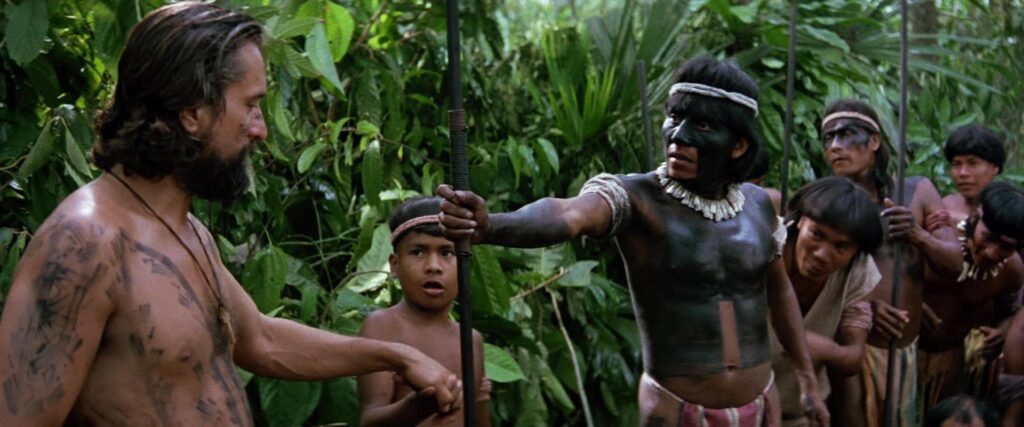
When Roland Joffé made The Mission (1986) he was at the height of his power having won tremendous acclaim for his film The Killing Fields (1984). On the basis of that film he was granted carte blanche on his next project, The Mission. Ultimately, The Mission flopped and was the subject of some controversy when the Catholic Church banned the film. Joffé, like Steven Spielberg, sort of invented what we think of today as an “awards bait” movie. These are films that are made in a more classical cinematic style but deal with major sociological and political themes; the epitome of “white elephant art”. This doesn’t necessarily mean these are bloated, un-compelling works by pseudo auteurs, it simply means that what value these films have is almost hidden within the larger spectacle.
The Mission does boast some rather fine performances. Jeremy Irons and Robert De Niro are both excellent in their parts, even if neither character ever feels fully developed beyond an archetype. Beyond a doubt The Mission‘s greatest asset is its haunting soundtrack by Ennio Morricone. Morricone’s work is as sophisticated as his reputation would suggest, but it’s the sheer beauty of the score that is disarming and makes this Morricone’s absolute best work. Every cue surpasses the images in emotional potency. Morricone, more than the actors, more than the filmmakers, does all of the heavy lifting dramatically. Without Morricone’s music, The Mission would be nothing more than an empty cavernous shell of a film.
Scenes of the jungle are also of great beauty, but those familiar with Aguirre, der Zorn Gottes (1972) will find nothing too incredible here. Joffé seems to almost refuse to push his cinematography beyond the serene wide angled shots designed to evoke a sense of awe. Opportunities to ground us visually in the world of the Guaraní are forsaken in order to keep viewers locked into the “safe white” world of the Jesuits.
This visual strategy speaks to the larger problem The Mission faces. Ostensibly The Mission is about the corrupting influence, genocide, and annihilation that followed European Imperialism into South America, yet the Guaraní exist within the narrative complex of the film not as characters, but as props. The Guaraní are used in the context of the film to solicit a kind of “white guilt” while also engaging the romantic notion that native peoples exist in a sphere akin to the Garden Of Eden before white settlers arrive. So in terms of plot the Guaraní people function as either objects of pity or objects of nature to be looked down upon the way people interact with monkeys at a zoo.
